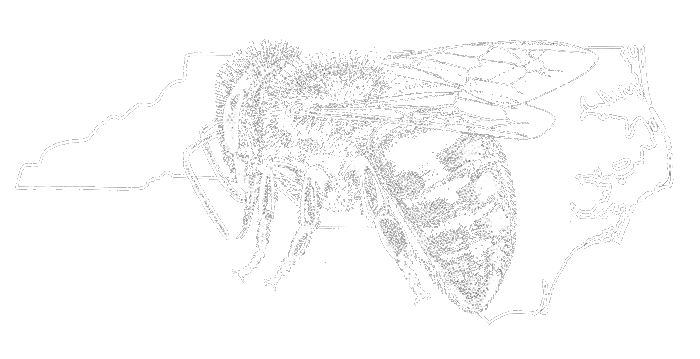The Master is the third level in the Master Beekeeper Program, and reflects a beekeeper who has demonstrated expertise in beekeeping and in a number of other specialized areas.
In order to become a Master Beekeeper, you must:
- Maintain an uninterrupted membership in the NCSBA since receiving the Journeyman Level Beekeeping certificate or 3 consecutive years of membership prior to being qualified to take any Master exam. Membership must be maintained through the Master certification process or the three-year rule referenced above will apply.
- Hold the Journeyman Level Beekeeper certificate for a minimum of 1 year before being permitted to take any Master Beekeeper Level beekeeper exam.
- Pass a written examination, administered by an NCSBA MBP representative at a statewide conference or special testing event. Written exams cannot be taken on consecutive days at the Spring or Summer conferences.
- Pass a Practical Examination, administered by an NCSBA MBP representative. Candidates must take the written Master Beekeeper Level exam before being permitted to take any of the remaining parts of the Journeyman/Master Practical exam. The candidate must successfully complete 8 of 9 Journeyman/Master Practical sections.
- Complete 6 of the subspecialties demonstrating excellence in beekeeping specialties.
- Have four years of beekeeping experience. (One year minimum as Journeyman Beekeeper)
- Complete ten additional public service credits after completing the Journeyman level.
- Assist in some manner as a volunteer at a state meeting or convention.
- Passing grade for the written Master Level exam is 75%.
A notebook is suggested for record keeping and for documenting competence at each specialty. Also, for listing and documenting each additional ten public service credits.
In order to prepare for the Master level, the following materials are available:
- Journeyman/Master Written Exam Study Guide (Attending a journeyman prep course could help as well)
- List of Valid Public Service Credits
- List of Beekeeping Sub-Specialties
- Instructions and Form for Reporting to the MBP Committee
If you have questions, please contact mbp@ncbeekeepers.org.
Master Beekeepers
David Arnold • Randall Austin • Dale Aycock • Phil Barfield • Brother Allen Blanton • James Blye • Edd Buchanan • Dorothy Butler • Brian Carlton • Mark Case • Lewis Cauble • Ryan Chamberlain • Greg Clements • Sam Coble • Shelly Cooper • Rick Coor • Karen Damari • Scott Davis • Denise Deacon • James Dove • Gus Dowdy • Ron Duncan • Justin Dyson • Terry Dyson • David Eckert • Marc Eden • Ken Edgar • Sally Ellis • Doug Faggart • Bryan Fisher • Gray Fisher • Charles Fleckenstein • Darryl Gabritsch • Bob Gaddis • Larry Green Jr • Buzz Griffin • Debbie Griffith • Kim Guillemette • Chris Hagwood • Rick Harty • Lori Hawkins • Jackie Hawkins • Charles Heatherly • Maryann Helton • Christi Henthorn • Berry Hines Sr • Dale Hinkle • Joe Hoggard • Wayne Holland • Jerry Hopping • Anne Houck • Ed Hunt • Ray Hunt • Will Johnson • Ralph Johnston • Barry Jones • Kenny Jones Jr • John Kasprak • Bob Kemper • Mike Kerr • Bill Lathan • William Lathan • Janno Lewis • Hugh Madison • Stacy Marriner • Buddy Marterre • Celeste Mayer • Chris Mendenhall • Jody Moore • Bill Moran • DJ Moran • Herve Morini • Bill Mullins • Etienne Nadeau • Paul Newbold • Brad Niven • Floyd Parker • JoAnne Parker • Willie Pascal Jr • Janet Peterson • Mark Anthony Powers • Jim Rash • Roland Reed • Henry Reid • Marcel Renn • Ray Revis • Debra Roberts • Greg Rogers • Wayne Rose • David Segrest • Billy Smith • Joe Smith • Robert Smith • Cynthia Speed • Karen Speer • Jeff Stone • John Strickland • Lawton Suggs • Mellie Swaney • Julie Taylor • Scott Taylor • Bill Thering • B Townes • Carolyn Treffinger • Phil Uptmor • Todd Walker • Monica Warner • Todd Warner • Susan Warwick • Pat Weisbrodt • Stephen West • Jimmy Williams • Gary Winebarger • Gregory Wolgemuth • Gayle Young • Jerry Zima

